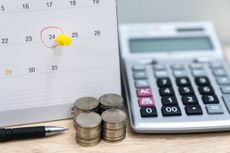Investing
News, insights and expert analysis on investing from the team at Kiplinger.
Explore Investing
Latest
-

How to Position Investments to Minimize Taxes for Your Heirs
To minimize your heirs' tax burden, focus on aligning your investment account types and assets with your estate plan, and pay attention to the impact of RMDs.
By Christopher Budd
-

Are You 'Too Old' to Benefit From an Annuity?
Probably not, even if you're in your 70s or 80s, but it depends on your circumstances and the kind of annuity you're considering.
By Ken Nuss
-

Seeing Retirement Ahead? Why Your 50s Will Be So Significant
This is the perfect time to assess whether your retirement planning is on track and determine what steps you need to take if it's not.
By Kristy Eller
-

Your Retirement Isn't Set in Stone, But It Can Be a Work of Art
Setting and forgetting your retirement plan will make it hard to cope with life's challenges. Instead, consider redrawing and refining your plan as you go.
By Bonnie Treichel
-

The Bear Market Protocol: 3 Strategies to Consider in a Down Market
The Bear Market Protocol: 3 Strategies for a Down Market From buying the dip to strategic Roth conversions, there are several ways to use a bear market to your advantage — once you get over the fear factor.
By Mike Decker, NSSA®
The Bear Market Protocol: 3 Strategies for a Down Market -

40 Stocks That Could Rally 40% or More
Analysts say these S&P 500 stocks have at least 40% price upside over the next year or so.
By Dan Burrows
-

Dow Adds 1,206 Points to Top 50,000: Stock Market Today
The S&P 500 and Nasdaq also had strong finishes to a volatile week, with beaten-down tech stocks outperforming.
By Karee Venema
-

5 Dividend Growth ETFs to Buy
Dividend growth ETFs can provide investors with a steadily growing stream of passive income and exposure to quality companies.
By Tony Dong, MSc
-

What to Look Out for in Economic Data This Week
Key updates on the labor market and inflation will have Wall Street tuned into the economic calendar this week.
By Karee Venema
